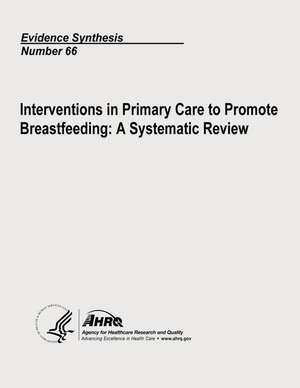Interventions in Primary Care to Promote Breastfeeding
Autor U. S. Department of Heal Human Services, Agency for Healthcare Resea And Qualityen Limba Engleză Paperback
Preț: 144.82 lei
Preț vechi: 152.44 lei
-5% Nou
Puncte Express: 217
Preț estimativ în valută:
27.72€ • 30.12$ • 23.30£
27.72€ • 30.12$ • 23.30£
Carte indisponibilă temporar
Doresc să fiu notificat când acest titlu va fi disponibil:
Se trimite...
Preluare comenzi: 021 569.72.76
Specificații
ISBN-13: 9781492223917
ISBN-10: 1492223913
Pagini: 204
Dimensiuni: 216 x 280 x 11 mm
Greutate: 0.49 kg
Editura: CREATESPACE
ISBN-10: 1492223913
Pagini: 204
Dimensiuni: 216 x 280 x 11 mm
Greutate: 0.49 kg
Editura: CREATESPACE
